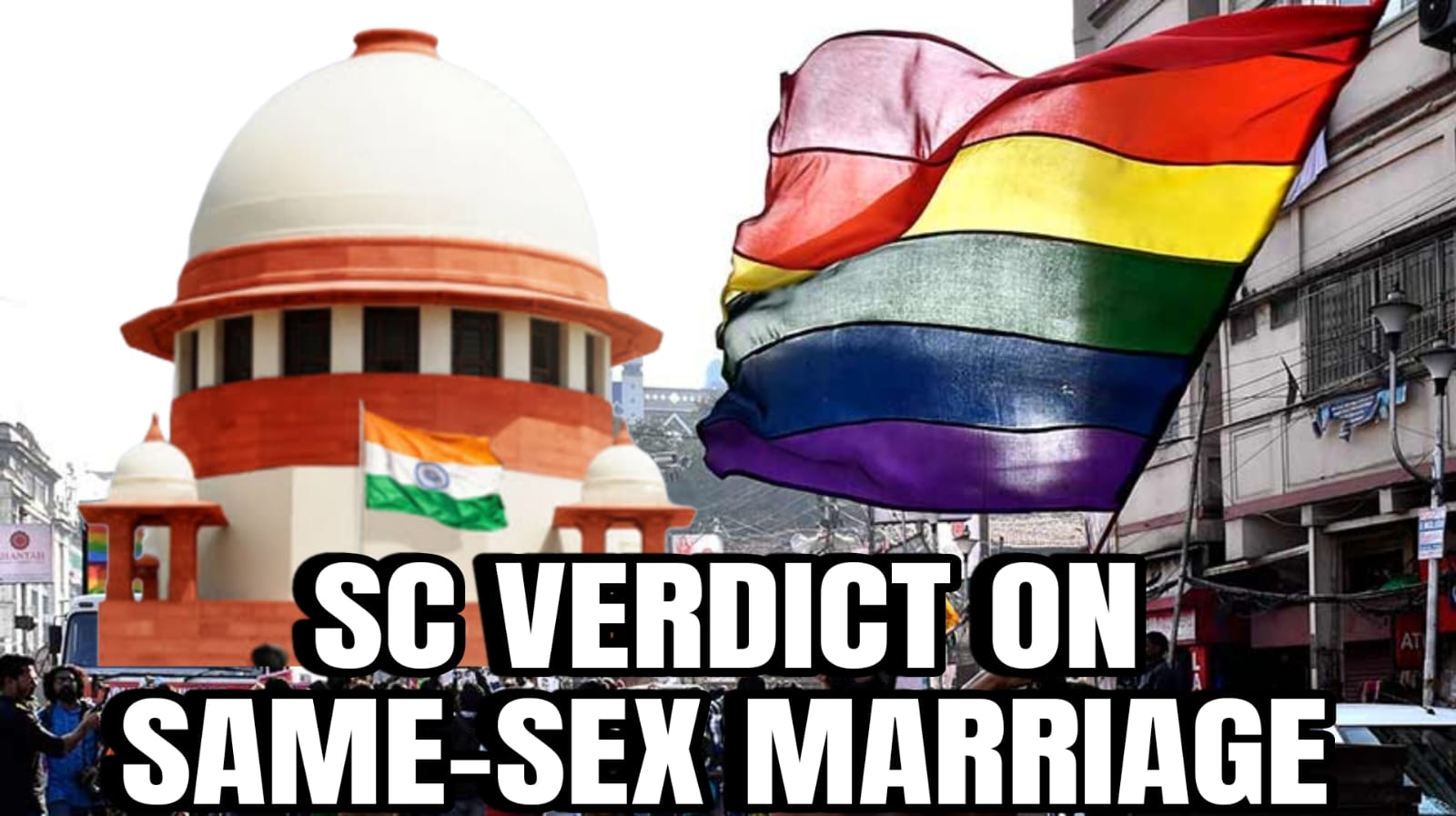Supreme Court Defers to Parliament on Same-Sex Marriage: The Continuing Debate on LGBTQ+ Rights
The recent Supreme Court verdict regarding same-sex marriage in India, which was delivered on October 17, had significant implications for the LGBTQ+ community and the country's legal landscape. This decision was reached by a five-judge bench of the Supreme Court, presided over by Chief Justice of India DY Chandrachud. The verdict was unanimous, meaning that all five judges concurred in their ruling.
The Ruling Against Legalizing Same-Sex Marriage: The key aspect of this verdict was the unanimous decision against legalizing same-sex marriage in India. This means that, as of this ruling, same-sex couples are not legally permitted to marry in the country. This ruling has sparked significant discussions and debates on the rights of LGBTQ+ individuals and the need for legal recognition of same-sex marriages.
The Verdict on Civil Unions: Another significant aspect of the verdict was the 3:2 split decision against allowing civil unions for non-heterosexual couples. Civil unions typically provide legal recognition and some of the rights and responsibilities that come with marriage, without conferring the full status of marriage. The 3:2 split indicates that there was some division among the judges regarding this aspect of the verdict.
The Bench Composition: The five-judge bench that delivered this decision included several prominent jurists: Chief Justice DY Chandrachud, Justices Sanjay Kishan Kaul, Ravindra Bhat, Hima Kohli, and PS Narasimha. These judges played a crucial role in shaping the verdict, and their individual perspectives and interpretations of the law likely influenced the final outcome.
This verdict has far-reaching implications, not only for LGBTQ+ individuals but also for the broader conversation about human rights and equal treatment under the law in India. It reflects the ongoing debate around issues of gender and sexual orientation and underscores the need for a broader societal dialogue on these matters. It is important to note that legal interpretations can evolve over time, and public opinion may influence future decisions regarding same-sex marriage and LGBTQ+ rights in India.
The Chief Justice of India (CJI) has voiced his stance on a crucial issue that has been a matter of extensive debate in the country's legal landscape. In his opinion, the CJI has deferred the decision-making authority to the Indian Parliament regarding a matter of significant social and legal consequence. This statement underlines the separation of powers, emphasizing that the judiciary does not intend to infringe upon the domain of legislative decision-making.
Justice Kaul, a member of the judicial panel, has expressed support for the idea of civil unions for non-heterosexual couples. His perspective aligns with the broader global trend towards recognizing the legal rights and unions of LGBTQ+ individuals. This viewpoint emphasizes that the judiciary acknowledges the importance of recognizing diverse relationships and providing legal protection to those who don't conform to traditional heteronormative structures.
However, the CJI added a crucial caveat: the Supreme Court cannot unilaterally strike down provisions of the Special Marriage Act (SMA) or reinterpret its language in a way that would automatically include same-sex couples. The SMA, as it stands, is a secular legislation designed to facilitate inter-caste and inter-faith marriages. The primary focus of the petitions filed in court has been to advocate for a gender-neutral interpretation of the SMA. This perspective argues for extending the legal provisions of the SMA to encompass same-sex marriages, allowing LGBTQ+ couples to enjoy the same rights and legal recognition as heterosexual couples.
Justice Kaul's endorsement of civil unions for non-heterosexual couples is seen as a significant step toward achieving marriage equality in the country. However, despite varying viewpoints on the issue, all five judges unanimously concurred that there is no fundamental constitutional right specifically guaranteeing the ability to marry, regardless of sexual orientation. In a majority verdict, the court decided against legalizing same-sex marriages. This majority view underscores the importance of deferring this decision to the legislature or Parliament, emphasizing that the responsibility for amending or enacting laws pertaining to same-sex marriage should rest with elected representatives.
The legal battle surrounding this issue saw a comprehensive and extensive debate within the top court, spanning over ten days in April and May. The arguments presented touched on a wide array of themes, ranging from fundamental principles of equality and privacy to examining the legal privileges and rights associated with marriage. The potential effects of same-sex marriages on children were also a point of contention. Opposition to the petitioners came from various quarters, including the Central government, the National Commission for Protection of Child Rights (NCPCR), and the Jamiat-Ulama-i-Hind, an organization representing Islamic scholars.
In sum, while this verdict signifies that the Supreme Court has deferred to Parliament on the matter of same-sex marriage, it is essential to recognize that the legal and societal discourse around LGBTQ+ rights and marriage equality in India remains an evolving and dynamic space. The issue, though not resolved through this verdict, has firmly established itself as a subject of continuing debate and advocacy in the country's legal and social landscape.

